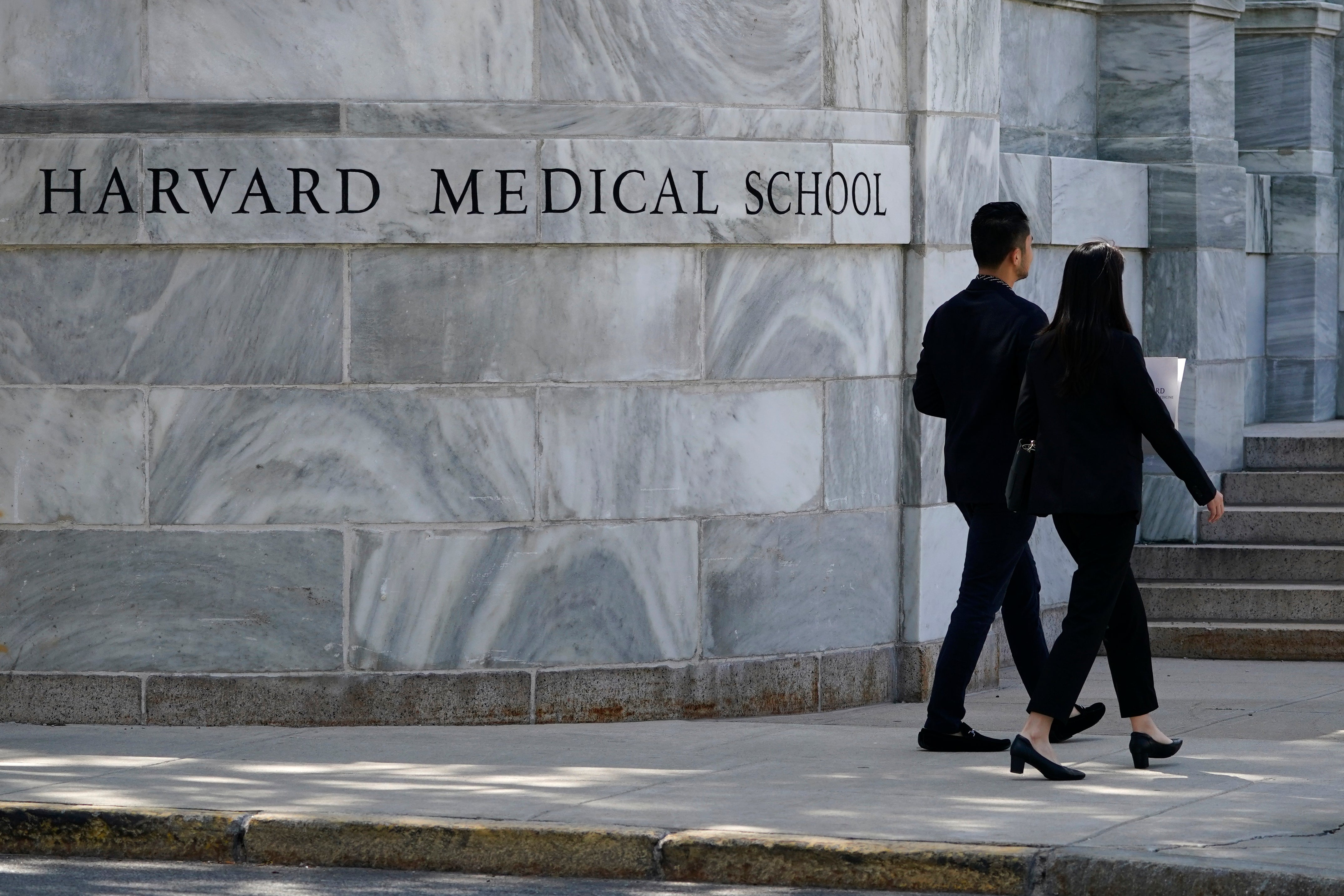Judge dimisses lawsuits from families in Harvard body parts theft case
A lawyer for families that sued Harvard Medical School for negligence over the theft of body parts of their loved ones from its morgue pledged to appeal Tuesday after a judge in Boston dismissed the lawsuits

Your support helps us to tell the story
From reproductive rights to climate change to Big Tech, The Independent is on the ground when the story is developing. Whether it's investigating the financials of Elon Musk's pro-Trump PAC or producing our latest documentary, 'The A Word', which shines a light on the American women fighting for reproductive rights, we know how important it is to parse out the facts from the messaging.
At such a critical moment in US history, we need reporters on the ground. Your donation allows us to keep sending journalists to speak to both sides of the story.
The Independent is trusted by Americans across the entire political spectrum. And unlike many other quality news outlets, we choose not to lock Americans out of our reporting and analysis with paywalls. We believe quality journalism should be available to everyone, paid for by those who can afford it.
Your support makes all the difference.A lawyer for families that sued Harvard Medical School for negligence over the theft of body parts of their loved ones from its morgue pledged to appeal Tuesday after a judge in Boston dismissed the lawsuits.
Suffolk County Superior Court Judge Kenneth Salinger said the lawsuits from donors’ families failed to show Harvard was responsible for the conduct of its morgue manager, accused of the alleged thefts.
Kathryn Barnett, a lawyer representing families, said they aren't done fighting in the courts. Forty-seven relatives of people who donated their bodies brought 12 separate lawsuits which were consolidated, she said.
“We are profoundly disappointed with this decision, but it is not the final word on our efforts to prevent Harvard from shirking its responsibility,” she said. “We will appeal.”
A spokesperson for Harvard said the school would not comment on the judge’s decision.
Barnett faulted Salinger's ruling, saying he too readily accepted Harvard's argument that they acted in good faith and shouldn't be held responsible.
“If you’re an institution and want to accept bodies for science, you could just hire someone, give him the keys to the morgue, send him to a dark corner of the campus and never check up on him,” she said. “That can't be the law.”
Barnett said the families support the donation of bodies for science but believe institutions that accept bodies need to do more to ensure they are being handled properly.
In his decision, Salinger pointed to what he called Harvard's qualified immunity under the state's version of the Uniform Anatomical Gift Act.
“The factual allegations in the complaints do not plausibly suggest that these Harvard Defendants failed to act in good faith in receiving and handling the donated bodies,” Salinger wrote.
Jennie DunKley of Easton, Massachusetts is one of the family members suing Harvard. Her husband, a retired New York City police sergeant, died in 2018 of cancer at age 67 and donated his body.
DunKley said Harvard's refusal to take full responsibility has done more to desecrate the donation process than those who allegedly stole body parts.
“I can’t speak to the law but the fact that Harvard is fighting this to begin with and refusing to accept responsibility obliterates the sanctify and fidelity of the process so people won’t be willing to give,” said DunKley, 66, a special education consultant.
The former morgue manager, Cedric Lodge of Goffstown, New Hampshire , is accused of stealing dissected portions of cadavers that were donated to the medical school in the scheme that stretched from 2018 to early 2023. The body parts were taken without the school’s knowledge or permission, authorities have said.
Lodge, his wife and others are facing federal criminal charges. Both Lodge and his wife have pleaded not guilty.
Harvard said Lodge was fired May 6.
According to prosecutors, the defendants were part of a nationwide network of people who bought and sold remains stolen from Harvard Medical School and an Arkansas mortuary.
Lodge sometimes took the body parts — which included heads, brains, skin and bones — back to his Goffstown, New Hampshire, home, and some remains were sent to buyers through the mail, according to the criminal case. Lodge also allegedly allowed buyers to come to the morgue to pick which remains they wanted to buy, authorities said.
Bodies donated to Harvard Medical School are intended for use for education, teaching or research purposes. Once they are no longer needed, the cadavers are usually cremated and the ashes are returned to the donor’s family or buried in a cemetery.